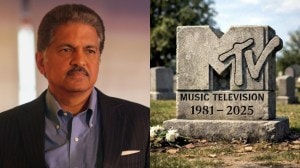This Quote Means: ‘The Internet is becoming the town square for the global village of tomorrow’
What exactly is the concept of a town square, and why is it deemed so necessary for debate? Are social media companies similar to such spaces?
 Canadian philosopher Marshall McLuhan is believed to have first spoken about a "global village" in his 1962 book, The Gutenberg Galaxy. (Via Pixabay)
Canadian philosopher Marshall McLuhan is believed to have first spoken about a "global village" in his 1962 book, The Gutenberg Galaxy. (Via Pixabay)Microsoft co-founder Bill Gates is said to have spoken about the role that the Internet may play in the future as a common space where people could share ideas, saying “The Internet is becoming the town square for the global village of tomorrow”.
While it is not definitively known when Gates said this, or if the quote is paraphrased from other words from him, the Internet has been linked to the concept of a “town square” quite often.
When billionaire entrepreneur Elon Musk purchased the social media platform Twitter in 2022, he said, “Free speech is the bedrock of a functioning democracy, and Twitter is the digital town square where matters vital to the future of humanity are debated.” What exactly is this town square, and why is it deemed so necessary for debate? Even before modern technology came about, what purpose did the concept of a town square serve?
What is a town square?
In a literal sense, the term refers to a common space in a town or a village, where people get together, music may be played, and conversations may be had among inhabitants. In the realm of philosophy, it refers to the ancient Greek practice of discussing ideas prevailing at the time, holding debates, and talking about common concerns.
What was the value of debate in a town square?
The term Agora referred to such a space, where people could gather. At the time, ‘sophists’ or those engaged professionally in the art of rhetoric would carry out such conversations in public view. However, philosophers Plato and Aristotle describe them as being fallacious in their reasoning and intentionally arguing in a way that lacks merit to sway the audience towards a point of view.
An article in The Conversation notes, “Aristotle found an antidote by proposing rules for ethical rhetoric, against which the populist claims could be measured. Ethos (credibility), pathos (emotions) and logos (logic) would become the cornerstones of proper ethical rhetoric that could be used to measure all kinds of persuasive messages.”
Thus, it underlines the idea that simply delegating a space as one for open debate is insufficient because of potential bad actors and an audience that maybe unable to understand when manipulation tactics are being employed against it.
That’s where the comparison with a platform like Twitter becomes clear, in a way. Social media spaces act like areas where everyone can talk to each other and engage in debate. Indeed, early on, Twitter and Facebook were used during the Arab Spring, a series of protests in various countries in the Middle East and North Africa in the early 2010s. When traditional means of communication were obstructed, these networks helped people gather and raise their political issues.
However, critics note how the way these companies operate now speaks of the absence of regulation which is considered acceptable by its users. Policies of punishing hate speech are considered unfair, or biased against a particular ideology. And so, even when a platform is available, the lack of a common set of rules like the one Greek philosophers hoped to create, makes genuine, good-faith debate difficult.
What is a global village?
Canadian philosopher Marshall McLuhan is believed to have first spoken about a “global village” in his 1962 book, The Gutenberg Galaxy. It refers to the idea that new electric interdependence has shrunk the world, where most of us are easily reachable.
Since then, with the rise of the Internet and now artificial intelligence, his words ring truer than ever before. But is it also true that a global village or an interconnected world needs a free space for debate?
The value of arguments is inherent – it means a society is acceptable to a diverse range of ideas, and people have the freedom to voice them and accept feedback or criticism. However, the quality of these factors determines the quality of the debate happening. If social media platforms encourage engagement and more audiences flock to them, they could make those posts more visible that are controversial but not substantial. And so, their claims of being a public square become questionable.
X (formerly Twitter) said in a post this year that it “will create more original content and bring in more talent with some of the most interesting and engaged people on X.” The subjectiveness of what interesting debate means that while we are living in a global village-like setup, certain online communities can not always serve as the public square we need.
As happened in the case of Greece, interventions can come when people believe that they can identify duplicity and those who lie to the public. Setting some basic standards for what is unacceptable and needs immediate removal could be one way to ensure the sanctity of a public space for discussion.
Or maybe, it could lead to a discussion on what an entirely new kind of platform may look like, perhaps one that is not dependent on user attention for its sustenance.
- 01
- 02
- 03
- 04
- 05






































